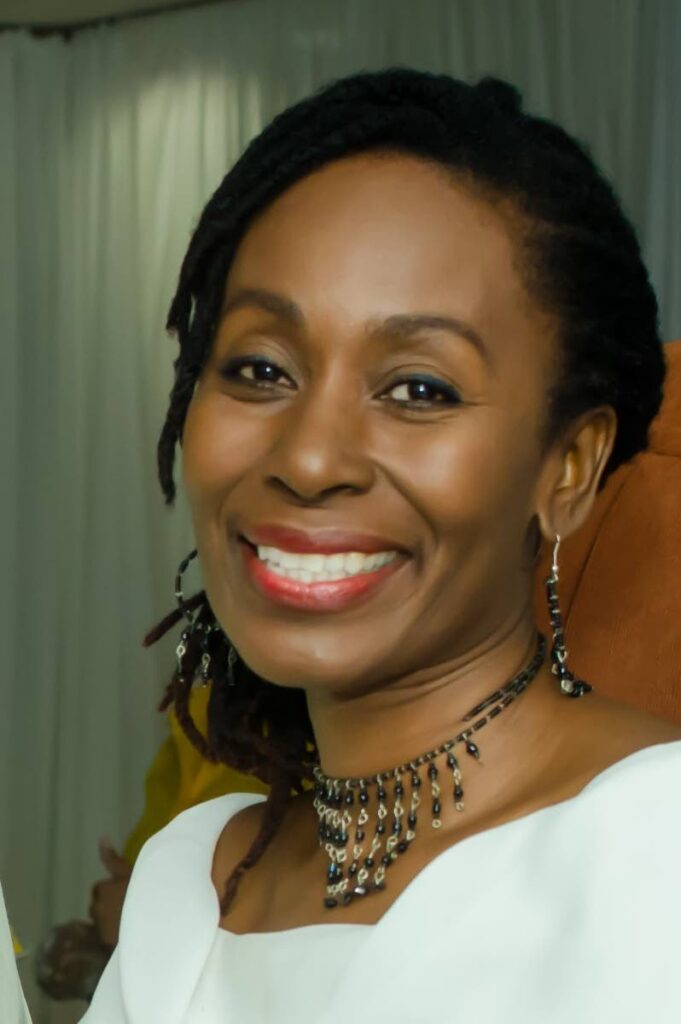Trinidad and Tobago doesn't accept being different

Dara Healy
Invisible minority. She-male. Tomboy. Tranny.
These are some of the terms to describe and dismiss people from the non-heterosexual sections of our society. Fortunately, I am not part of the social circle of people who repeat these derogatory phrases, as my reality always included people from all spectrum of life.
For me, difference is normal.
Sadly, the latest flare-up over gender, sexuality and children reminded me again that for many in our nation, difference is not acceptable. As we continue to chatter incessantly about the presence of books on LGBTQI+ orientation, has anyone asked young people what they want or need?
“Miss, I don’t identify as any special gender.” “Please use the pronouns they, them and their to describe the artist.” The language around gender and sexuality continues to move faster than the world can grasp.
Still, I think I responded relatively well to that young person.
I listened while consciously making every effort to strip myself of pre-learned notions of gender and sexuality. As a society, this type of response is profoundly absent when it comes to this subject. Add, the complication of children into the conversation, and well, we stop listening altogether.
One of the ways earlier generations learned about social norms connected to gender and sexuality was through certain cultural cues.
Calypso was a particularly powerful vehicle for underscoring antiquated views about manhood, family and the place of women in society. As Gordon Rohlehr comments, “Masculinity is here, as elsewhere, associated with championship. Its ethos is that of the gladiator. Love-making occasions are bouts, fights; the penis is a powerful fist, its thrust has the force of a knock-out punch.”
In this vein, there are dozens of calypsoes proclaiming the prowess of men. Lord Kitchener, sang a clever calypso about the “size of the needle,” while Mighty Sparrow, declared that “man want to feel like he is a big wheel, big in every way.”
Over the decades, the increased presence of women on stage ensured a shift in the conversation about gender roles and norms. Singing Sandra declared she would resist gender-based harassment at work and die with her dignity.
Singing Francine urges women to run away from abuse and Calypso Rose instructs men to leave her alone when she is enjoying her carnival. Internationally, all-female Hip Hop/R&B groups like TLC began singing aggressive sexual lyrics like, “I ain’t too proud to beg/And I want to be touched/Everybody needs some good lovin.”
Often, hyper-macho sentiments in calypsoes left little tolerance for a different interpretation of gender and sexuality.
Calypsonian Bomber in his brilliantly amusing calypso, Ma Ma Man, sang about a “he-she” who was apparently attracted to Bomber.
"Eh Bomber darling, whey going on?/It look like you come to check out Sarah Vaughn?"
In Merchant’s calypso Norman is that You, he explores his confusion about his friend and someone he regarded as a brother who now dresses as a woman. It always struck me that there is no resolution about their friendship. Merchant simply feels betrayed over what happened to Norman when he left TT to go abroad.
Herein lies one of the reasons why TT continues to lag behind global conversations around diversity, inclusion and human rights. There seems to be a feeling that LGBTQI+ sexual orientations are due to foreign influences corrupting our children and turning them into the "other" category in the gender section of a survey form.
Then, why only ban those couple of books? Why not block everything that addresses sexuality?
In recognition of the stigma, bullying and trauma experienced by children who have no one to listen to them, organisations like the American Psychological Association advocate for a new approach to gender and sexuality in schools.
A key factor is the concept of schools as safe spaces.
They also emphasise the collection of data on sexual orientation and gender in schools. Our schools urgently need trained professionals who can have non-judgemental, respectful and informed conversations with young people about this issue, such as where is support available and what words or phrases are offensive when describing gender identity.
Our education system must also provide young people with the tools and support that they need.
Inclusion. Representation. Empowerment. Social justice. Visibility. Acceptance. These words are certainly better than the ones we currently use. When it comes to our children, we should think before we attack. In fact, we should just think.
Dara E. Healy is a performance artist and founder of the Indigenous Creative Arts Network – ICAN.


Comments
"Trinidad and Tobago doesn’t accept being different"